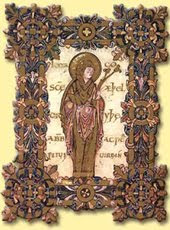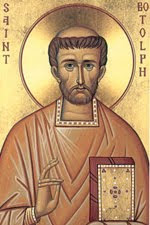This is the text of my sermon for the 3rd Sunday After Petecost. I had intended to record it but I forgot to press record. So here you go.
Last week we spoke about what church means from the point of view of the individual, you, me, all of us. What makes us Orthodox and how to we stay that way. If you remember I read from the Statutes about the definition of what it means to belong to the Orthodox Church.
1. Fulfill your financial obligation
2. adhere to and live your life in accordance of the faith of the OC
3. faithfully attend the Divine Services
4. partake regularly in the mysteries of the church to include confession and communion
5. be obedient in matters of faith
6. be an effective witness and example of the Orthodox faith and traditions to all people.
That’s how we practice our faith on the personal level but Orthodoxy is not a personal private faith, Orthodoxy is a faith that is lived in the open. We do not have private masses or private church functions, we are open and inviting.
Our worship is corporate, in other words we do it together. When we come to the Liturgy, any Liturgy, we are not there for ourselves we are here for each other. This is not a time for personal prayer it is a time when all of us, the church, prays together. We do not sit alone in the corner, or the back of the church as the case may be, and pray alone and for our own intentions, no we pray for all.
We pray for:
1. Peace for ourselves
2. salvation of our souls
3. peace in the world
4. for our church, and those who are here
5. for our bishops
6. the country
7. for our town
8. favorable weather, and abundance of God’s gifts for us
9. those who travel
10. deliverance from all danger
Except for the first prayer, none of the rest are just for us, we pray for everyone, literally everyone, Orthodox and non Orthodox.
The very word church means a gathering, and assembly. To the early Christians this meant a gathering to realize and to reveal the Church. We take that one step further we this is a Eucharistic gathering, a place where we break bread together as community. Not as individuals, but we do this communally. No one of us can celebrate the Eucharist alone, I cannot celebrate the Eucharist alone, and neither can you. We do it together, it is not my Liturgy but ours communally and in community. Notice the words union and unity in there.
In the opening lines of the Divine Liturgy we say, In Peace, Let us pray to the Lord. We need to be at peace with one another and ourselves before we can be an effective witness for Jesus Christ in the world.
Scripture tell us, if we bring our sacrifice to the altar, and we have something against our brother, go and reconcile yourself with your brother before you bring your sacrifice. We need to be at peace with each other because all of us, worshipping together in one voice and one mind, make the building the church.
The Eucharist should not be seen as an individual responsibility but as the sacrament of the assembly and therefore the Sacrament of the Church. All of us are con celebrants of the Eucharist, not me alone standing here saying the words, but all of us standing in the presence of God praying the words together, that is why you have the liturgy book so you can pray along with me the words of the Liturgy. We are not merely an audience but all of us are in fact the actors of the Divine Play taking place before us and we all have our part to play.
The very word, amen, that we say at the end of all of the prayers, seals the pray and you give your assent to the prayer with your amen. Your amen to the end of the priestly prayer binds us together in the act of worship. The prayers of the Liturgy, with the exception of the lone prayer the priest prays for himself, are prayed for all of us on behalf of the entire church gathered around the world. We are but a small part of a very large gathering.
All of there prayers have as their content, our praise, our repentance, our thanksgiving, our communion, “unite all of us to one another who became partakers… in the communion of the Holy Spirit” as the liturgy tell us.
We do not come as individuals to the Church, the miracle of the church assembly lies in that it is not the “sum” of the sinful and unworthy people who comprise it, but it is the very body of Christ. When we gather we no longer gather for ourselves but we all make up a part of the very body of Christ, it is a mystical experience. We sit in a temple not just another building. At the consecration of this church, the entire building was consecrated with the holy oil, not just the altar, but the walls and the floor, all of it, we sit in the presence of the Holy One, we are not just in some auditorium preparing to see a play, we sit in the very presence of the Living God, the creator of all, our Creator and sustainer of our very lives. We defain the Holy when we enter for other reasons other than to worship together!
We are the Church, we make it up, Christ abides in His members and the Church does not exist outside or above us, but we are in Christ and Christ is in us. Christianity consists not in the bestowing on each the possibility of “personal perfection” but first of all in the calling and commanding Christians to be the Church – “a holy nation, a royal priesthood, a chosen race (1 Peter 2:9) – to manifest and confess the presence of Christ and His kingdom to the World. The holiness of the church is not our holiness, but Christ’s, who loved the church and gave himself for it, that he might sanctify her… that she might be holy and without blemish (Eph 5:25-27).
The Eucharist then is not one of the 7 sacraments of the church, or one of the services of the church, but the very manifestation and fulfillment of the Church in all her power, sanctity and fullness. Only by taking part in it can we increase in holiness and fulfill all that we have been commanded to do. The Church, when gathered in the Eucharist, even when it is limited to two or three, is the image and realization of the body of Christ, and only those gathered will be able to partake because they manifest him by their very presence in the community.
Your presence in the community manifests Christ as we gather in his name and for worship of him. We fulfill his command to take and eat, take and drink and by this action we become partakers of the one body and blood of Christ and take him into our lives and bring him out into the world.
We are not the audience but the actors. It is time to do and not just be!




